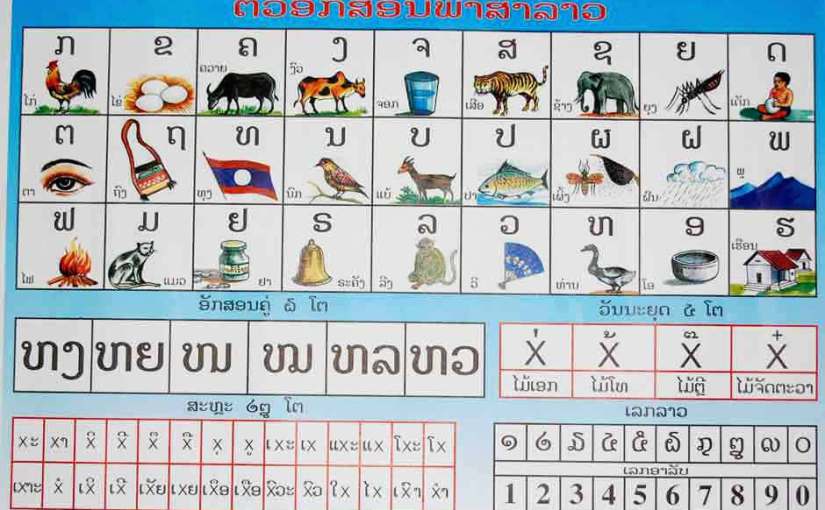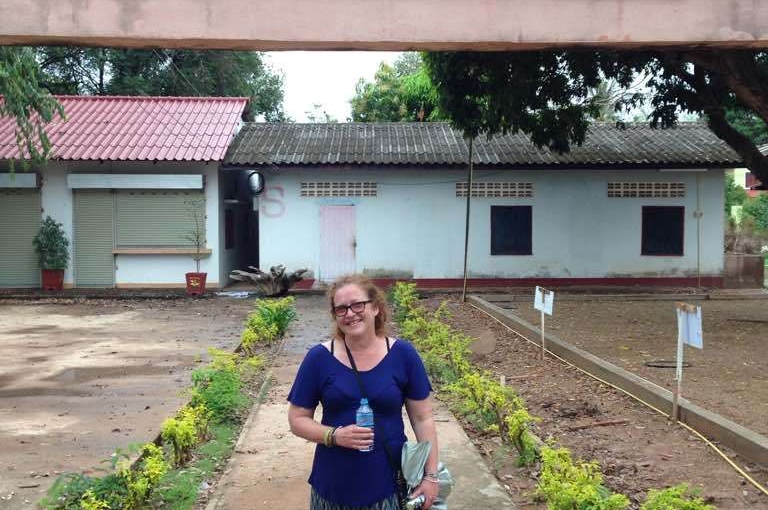(Originally written August, 2015 for Eric Grollman’s blog https://conditionallyaccepted.com – with thanks to Eric for suggested changes)
In Australia, we are not called ‘adjunct professors’ – a term commonly used in the United States. Rather, we are called ‘sessional’ or ‘casual academics‘. And, as I understand it, these positions may include research, teaching, planning and coordinating units, supervision, student consultations, marking – yes, all the work of a ‘real’ (tenured) academic without the security. Of course our CVs will say ‘academic’; our insecure employment status is not how we label ourselves or what we do.
I am given a ‘contract’ of sorts, that over the 11 week trimester, I will be paid for teaching time, meetings and marking. We can claim nothing during the 2-5 week ‘break’ when students are off on their placements. The ‘breaks’ between trimesters means a break in income, unless, as often happens, the marking extends over this ‘break’, but that really is just stretching what we are entitled to. My annual income can easily fall below what might be considered ‘poverty level’ and I am never sure that I will be granted any work for the next trimester.
Just back from my psychologist – first appointment I’ve had for around a year. Because I was doing ok. Or was it because I was doing ok for a while, and then as I sunk down lower and lower into depression, I just couldn’t even pause for a minute to even consider how I was doing? I have written before about sessional/casual/insecure employment in academia, and links with mental health. I want to share some of this story while it is fresh, and while I’m feeling better, and the way seems a bit clearer. Should I use a pseudonym? I won’t because I want to say it how it is, to make it as real as it is to me, and not pretend we can protect ourselves with some hidden persona – because that is part of the mess I continue to get myself into, by being myself, and by being as absolutely honest as I can, as me, Annabelle.
I realised I needed to seek help (again) because I was so, so angry. I have worked so hard for so many years, studying, teaching, writing, preparing applications and for (the occasional) interviews granted for those ‘real’ positions that offer some kind of ongoing job security, to do the job(s) I am already doing. I was working days, nights, and weekends, on preparing, reading, writing, marking, planning. I was working so damned hard, that my house was an absolute mess, my health was suffering, my diet abominable. I didn’t eat, I didn’t have time to eat! I was angry that I was putting in all this work, and yet was still not achieving any recognition (beyond the pay, when I had time to work out and submit my pay claim for each hour worked, in each category – as long as it was within the limits set by my initial contract). And, no matter how much my students appreciated the time and energy I put into teaching, my employer had no clue.
I was angry because I couldn’t remember what it felt like to be simply ‘happy’. Because I had no ‘holidays’ due – in fact, I couldn’t even work out what to do if I had a true ‘holiday’. I had lost sight of the difference between ‘work time’ and ‘holiday time’; either I was working, or I was worrying about whether I would get any more work. I was miserable company, every conversation seemed to come around to how angry I was, and why. Yes, I knew I had a point, but really, that’s just how things are … suck it up. There were no ‘answers’ that my friends could give, or that could improve how I was feeling – it’s just the way things are.
As a critical educator, ‘that’s just how it is’ is not good enough. I want to question why it is this way, how we could improve this, how ‘this way’ is making people feel, and is this how things should be? I want to help people see that it has only become ‘this way’ in academia because we have let it happen. Because we feel that we can’t raise these issues (i.e., insecure employment, overwork, power in the workplace, institutional priorities, economics) because of the way things are (i.e., insecure employment, overwork, power in the work place, etc.).
So I found myself sinking deeper into this angry pit of depression, and my marking was due. And a job had been advertised for which I thought I had a good chance (actually for doing what I already do). I prioritised the application and preparation for the interview. I failed to impress – no job. Dreams of getting a ‘real job’ shelved. Again. Marking still due. Feeling miserable, incapable, and yes, angry. I managed to devote myself for four days and nights, in silence, laptop on my lap, and I got that marking done, before the administrative cut-off, but after the turnaround for students to receive their feedback. The story got around, “Annabelle – late for her marking – again.”
And I haven’t even mentioned my children. My 20 year old son who has spent his whole life with his mother studying and working, saying that I need to do this so that I can get a ‘real’ job. And him telling me he didn’t want his six-year-old sister having to hear the same story as I sat at the computer, days and nights, working and worrying. His six-year-old sister now spends the week with her dad, who takes her to school and looks after her everyday needs, so that I can concentrate more on my ‘work‘ and have time for her on the weekends and holidays.
The job I had lined up for the next trimester was suddenly no longer ‘available’. The students I’d worked with, and who expressly wanted to work with me again, had no say, and neither did I. I managed to procure two teaching units, both of which I’d taught before, one of which I had chaired the year before. In an 11 week trimester, students are off on their practicums for between 3 and 5 weeks. Hence, no pay, no work for me. No money puts my mortgage, my bills, my bare existence in limbo.
Being angry and depressed, my head was full of questions, accusations, frustrations. What have I done wrong? I’ve asked questions, I’ve let my frustrations be known, I’ve put myself out there. I’ve tried hard, but maybe I really am just not good enough? Why haven’t I published? I don’t have time! I don’t have support! I am a sessionally employed teacher – my university has no support of, or even expectation that sessional teaching staff need to do research and be involved in research groups, conferences or discussions. My student evaluations sometimes tear my heart out – but I tried so hard! I have good pedagogical reasons for being a ‘hard marker’, for not giving straightforward answers to questions, and, at times, not responding ‘appropriately’ (an unfair accusation that I am unable to respond to in anonymous evaluations). And the significant number of good comments suggest that I’ve helped and/or supported my students more than any other teacher they’ve had, that they appreciated the challenges I presented them with, or asked whether I could teach them again. And yes, the good comments mean a lot to me; they recognise and appreciate the effort I put in. So why doesn’t my employer? And why can’t I be ‘rewarded’ with prior notice about my teaching load for the next trimester? Why do I have to wait and wonder, and worry, and beg, and plead for enough work to pay my bills and support my family?
Yes, there were moments when I felt as if the world was conspiring against me. This is part of the downhill misery slope: no matter how hard I thought about it, the only reason for not being given the work was that I had displeased someone, somewhere along the way, and this was their way of getting rid of the problem – me. Don’t be so paranoid Annabelle! This is not about YOU! This is just the way it is, why it is called “insecure employment”. There are reasons that have nothing to do with you personally. Ah yes, perhaps, but they do affect ME personally, and I have no alternative avenue to take – aside from leaving academia? Sadly, there are many who have taken that path after years of frustration (e.g., http://www.howtoleaveacademia.com/ ). Leave and go where? Ah that steep, slippery slope.
My numerous chronic, but invisible health conditions, my children, my mortgage, my advancing age, my single parent status – none of these are reasons to get any special treatment. But I do find myself at times railing against how much I have to deal with, and yet how little recognition or reward I receive for what I put in to my work. I know, of course, I’m not alone there. But to just suck it up? Not complain? Not share my story? Not imagine that something could be different?
Advice to Self:
Don’t ask difficult questions; don’t ‘rock the boat’; don’t bring up the issues that everybody just has to deal with; don’t remind those who manage to work with the system of how they’ve had to compromise their ideals; and just do the job you’re being paid to do.
Of course, my psychologist does not suggest that my ‘issues’ would all be fixed if it wasn’t for the conditions of my employment. Perhaps my ‘choice’ of employment is a result of the ‘issues’ I have. Maybe the ‘precariousness’ of my employment is a choice that relates to my inability to commit? Perhaps my commitment to honesty and asking the difficult questions, and interest in critical consciousness in all that I do is also a precursor (or result) of these ‘issues’? I have no idea, and will be going back to my psychologist to try to learn how to avoid tripping over into that pit of angry despair again. But, unfortunately, the issues that I have raised here and elsewhere are unlikely to go away. And I really hope that others are able to avoid the pit, and maintain a dignified and fulfilling balance in their academic and personal lives. And to keep on talking about it.
(Advice to Self be damned!)
Later…
I recently completed a course in ‘mental first aid training’, that I thought might help me with better responding to my students’ needs, and situations I seem to find myself in as a confessor and ear to students with various serious issues impacting on their studies and their lives. As a sessional, I had to battle a bit to get accepted into the course, which was for ‘all those who have direct contact with students’. Hmm, sounds like something helpful for we casual teaching staff that take on a huge amount of the face to face work with students.
I completed the two day course and enjoyed it. I didn’t learn a whole lot I didn’t know about mental health issues, but I did learn a whole lot about myself. I learnt that this is part of my calling, that being an ear and a consoler for those suffering mental health issues, and in helping to support and encourage them through their course, is a large part of why I do what I do. And why I do it in the way/s that I do. And why I pine for collaborative and supportive work environments, rather than competitive, dismissive and nasty ones.
As a sessional, I have been told – by union representatives and by sessional, contracted and tenured peers, that I am doing a disservice in spending my time with students when I am not paid for it, not expected to do it, and increasingly, not even entitled to do it. This role belongs to those for whom it is written into their job descriptions, and no matter that they are overworked, have no prior or working relationship with these individuals, or do not have the personality or desire to take on this role, I should leave it to them. Somehow this will show that sessionals should be paid for this responsibility if they take it on, that managers and unit chairs are somehow better at this role than sessionals, and administrators are cleared of responsibility because this is made clear to all involved.
Again, as a sessional, I want my story to be heard – that is, a huge part of my satisfaction from my job, and recognition that what I do means something to someone, is through my contact with students. Yes, unpaid time that I put in responding to emails, meeting with students and staying after class, that give me an opportunity to use my skills and to help a student in their time of need. This is time well spent. And I can come home to my family and tell them about this, and they feel proud – that their mother/daughter really cares about who she is working with – they see that this is what gives me some feeling of worth, so different to the rest of the frustrations I come home with.
I have been teaching sessionally for a long time now. I am no longer a poor student trying to support my way through to my PhD. I am an experienced, thoughtful, critical and reflexive practitioner and I am able to use my life experience to both teach and support my students in their journeys. I am not looking for more money, simply some recognition and security in continuing the damned good job that I am doing. But most of all, I do not want my role as mentor, as a willing ear, as a supporter, advisor and voice for my students’ needs and rights to be taken away from me because I am not a ‘real’ or tenured employee.
(2,345 words)






